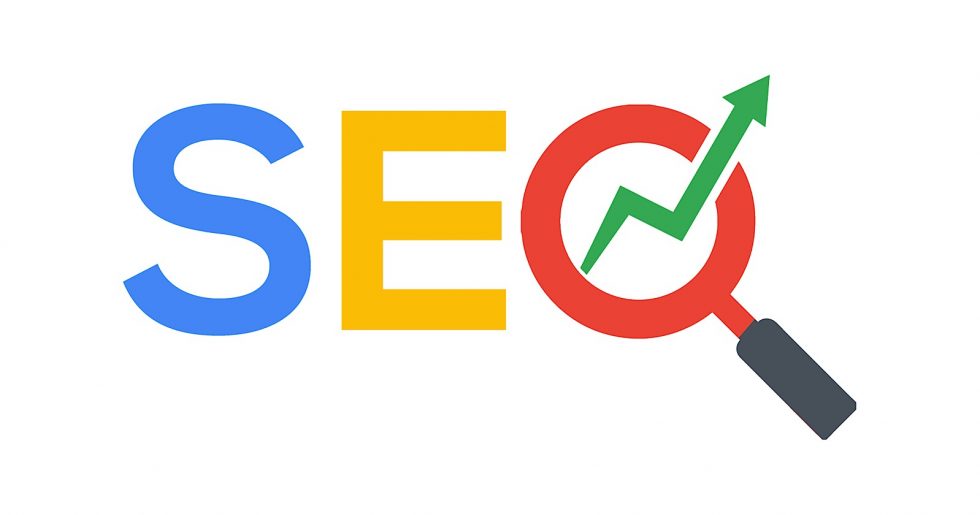The Best SEO Company Does Not Offer Ranking Guarantees Ranking...

Keywords refer to the words that people type into a search engine to explore a particular topic.
A great example of this would be that if someone wants to look for some good fast food places in their area then they type “best fast food places” in Google. Even though this phrase consists of more than one word it is still considered to be a keyword.

Keywords play an important role as they bring traffic to a website. When someone types in a relevant keyword that exists in a website into a search engine, the search engine directs them to that website.

Being on top of Google search when it comes to a relevant keyword can help content creators in achieving a great amount of traffic to their website.
Some of the ways that keywords can be used to achieve that are:

Certain tools can help figure out what words people will type in when searching for anything and everything. The most basic and easy method is to use a keyword research tool.
By simply adding a ‘seed keyword” into the keyword research tool; keyword ideas relevant to any topic can be found.

It is not possible to choose every keyword, which is why it is important to make smart choices. Let’s go over some of the characteristics of finding good keywords

Search intent refers to the “WHY” behind a search, we need to keep in mind why a person is searching for a query. e.g. if someone searches for refrigerators they might not just be searching to buy them. Their intentions might be to read some reviews on the products.
This is why keywords need to be chosen wisely so that the content lines up with the intent.

It is very important to judge the value of a keyword.
The CPC or cost per click in a keyword explorer can help in judging the value of a keyword. It demonstrates how much money advertisers are willing to spend on the keyword.
Yet, this is not always the case because if one person is willing to pay a good amount of money on a keyword does not mean that other people will be willing to do the same. Various other factors need to be brought into consideration when judging the value of a keyword.

Keyword difficulty helps in judging the amount and quality of the top pages of a keyword. This aids in analyzing the competition and the difficulty that we might face in outranking them.
Analyzing keyword difficulty helps in figuring out if the keyword is worth the investment.

According to most guidelines, to optimize the keywords these actions need to be carried out:
a) Inclusion of keyword in URL
b) Inclusion of keyword in the title tag
c) Addressing the keyword through the page
d) Inclusion of long-tail keywords in the copy
These actions do assist in the optimization of keywords, but more primary methods exist that also need to be followed as well. For e.g search intent needs to be matched to optimize for a keyword.
Various things should be kept in mind when matching search intent. Attention should be paid to the things that the searchers might be expecting to see. That way not just one but all their queries can be answered.
To do that other top-ranking pages should be analyzed to get the idea of the kind of information they are putting out. This will provide ideas in the new content that is being created.

Most definitions of Long-Tail keywords give people the idea that they refer to keywords with a lot of words, this is not entirely true.
Long-tail keywords refer to search queries that have a lower search volume. Longer keywords do indeed have a minimal search volume but even some, one or two-word keywords tend to come under long-tail keywords.

Supporting Long tail keywords refer to the more unpopular methods of searching for any topic.
A great example of supporting a long-tail keyword would be the use of direct words as the keywords. One example is using “learn how to reduce acne” instead of the more common search option, “Reducing acne”.
This is why a page should always be optimized for the most common method of searching for a topic rather than using a supporting long-tail keyword.

Topical long-tail keywords refer to the least volume search queries that a very small amount of people care to search about.
Because of the unpopularity of these kinds of keywords, they are much easier to rank for. A trick to increase your ranking with the help of Topical long-tail keywords is to rank for a huge amount of them.
An easy method to find topical keywords is to use keywords explorer and search for any topic, then add a filter of low volume keywords. The indicator that a word is a topical long-tail keyword is that the parent topic will be similar to the keyword.

Keywords are the base of SEO. This means that no content is optimized without understanding what people are searching for and expecting to see. Thus, we should use various types of keywords. Include both long-tail keywords and topical keywords to make your ranking strong on Google.
The Best SEO Company Does Not Offer Ranking Guarantees Ranking...
What Makes A Good Web Design Company? Professional Design What...
How To Optimize Your Law Firm Online Presence A high...
Do I Need a Professional Website Marketing Company? It’s only...
Tips For Designing An Innovative And Functional Website Navigation 5...
What Are Some Unique Tactics Offered by SEO Companies? Unique...
How To Design A Website That Generates Conversion Good Web...
Guide To SEO for E-Commerce Websites The Importance of SEO...
What Are Internet Marketing Mistakes I Should Be Avoiding? Internet...
Domain Authority and Links Local Search Ranking Search Engine Marketers...
Why Should I Use Landing Pages For PPC And What...
Keeping Your SEO Ranking Up While Your Website Is Down...
Is WordPress For Blogging? Advantages of WordPress Isn’t WordPress Just...
How To Optimize Your Web Pages To Appear As Featured...
What Are Some Of The Top Online Marketing Mythis? Online...
Should I Be Using Social Media Analytics Tools? Social Media...
SEO Tips When Targeting Queries With Low Search Volume High...
Mobile Web Design & Compatibility Website On Mobile Device How...
What Is Google AdWords And Why Should I Use It?...
Is PPC Advertisement Worth My Time? PPC Advertisement Catches Attention...
Automotive Dealership SEO Campaign Web Design Mistakes Mistakes made when...
Definition Of Off-Page SEO What Is Off-Page SEO? Increasing Site’s...
How To Improve Your Local Online Marketing Local Online Presence...
How Healthy is Your Magento store? Magento undoubtedly is one of...
Bad SEO Habits To Stay Away From Identify Your Bad...
Some Indications That Your Website Needs To Be Updated Website...
6 Ideas For Conversion Focused Website Design Business Website How...
Questions To Ask Before Hiring An Ecommerce Solution Company Ecommerce...
Automated Link Building Can I Automate the Link Building Process?...
Mobile Web Design Problems & Solutions Mobile-friendliness How to Achieve...
Don’t Fall For SEO Canada Firm Rankings – Here Is...
PPC vs SEO: Knowing The Differences I Already Do PPC,...
How Can I Get More Traffic to My Website or...
Tips To Ensure Your Readers Quickly Grasp Your Message Ensure...
Ways To Make Your Online Shopping Website Design Unique Online...
Want to Create an Ideal Ecommerce Site? Here is What...
Google’s Local 3-Pack Google Local Pack Maintaininh Their Competitive Edge...
Techniques For Good Website Development There is nothing constant with...
Nova Solutions Headquarters
700 University Ave, Toronto, ON M5G 1X6
Tel: +1 800-790-3082
Office Hours: M-F 9am – 9pm
Copyright © 2021 Nova Solutions Corporation | All Rights Reserved.
Working with Third-Parties








A good website starts with stunning design. As the Lead Designer at Nova,
Andrew uses his vast experience with web development, graphic design &
brand building to create the majority of our web portfolio. He has worked
with many CMS & commerce products and has built innumerable websites.
Andrew excels at creating stunning (UXD) User Experience Design and
endeavors to put a little bit of soul in every web design project so that it may
have a life of its own.






Kevin is a strategic thinker that can quickly evaluate and find creative
solutions to challenging digital problems. Since 2001, he has been
developing solutions that not only maximize digital presences
but that also have the most impact on markets.
Kevin is a Senior Consultant at Nova Solutions who is passionate about SEO,
user experience and conversion optimization.
